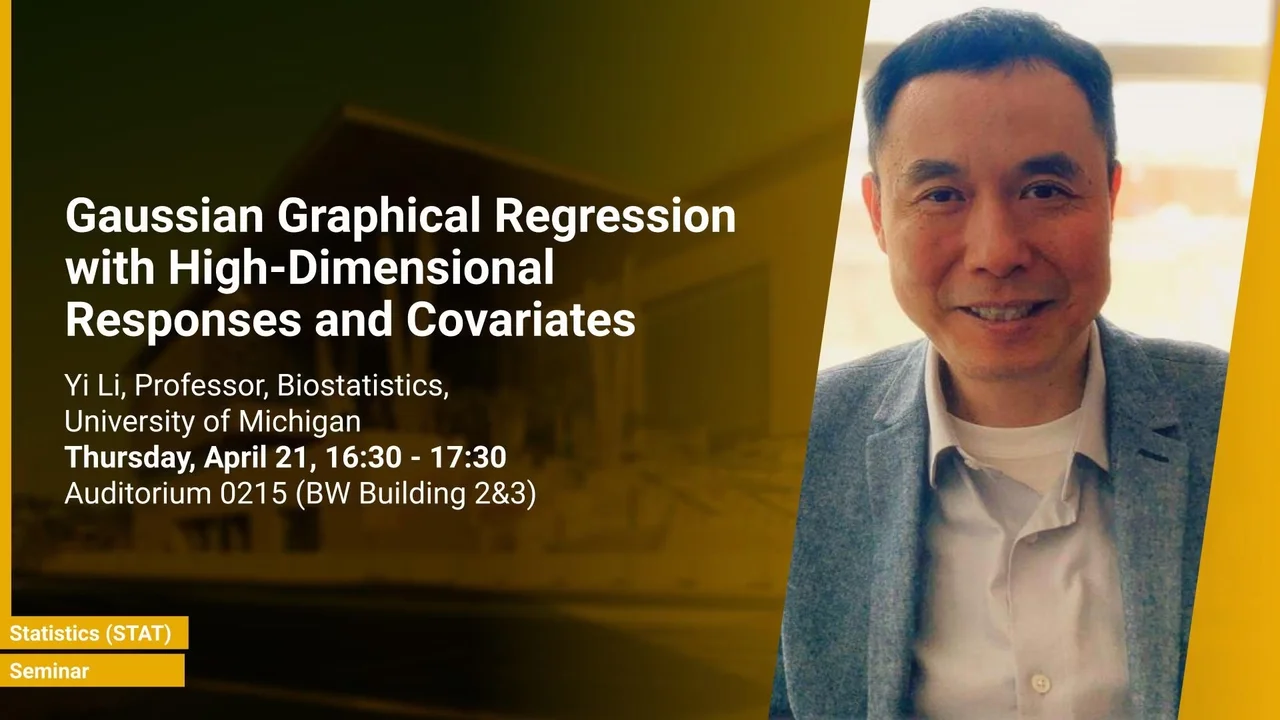
Gaussian Graphical Regression with High-Dimensional Responses and Covariates
- Yi Li, Professor, Biostatistics, University of Michigan
B2 B3 A0215
Though Gaussian graphical models have been widely used in many scientific fields, relatively limited progress has been made to link graph structures to external covariates. We propose a Gaussian graphical regression model, which regresses both the mean and the precision matrix of a Gaussian graphical model on covariates. In the context of co-expression quantitative trait locus (QTL) studies, our method can determine how genetic variants and clinical conditions modulate the subject-level network structures, and recover both the population-level and subject-level gene networks.
Overview
Abstract
Though Gaussian graphical models have been widely used in many scientific fields, relatively limited progress has been made to link graph structures to external covariates. We propose a Gaussian graphical regression model, which regresses both the mean and the precision matrix of a Gaussian graphical model on covariates. In the context of co-expression quantitative trait locus (QTL) studies, our method can determine how genetic variants and clinical conditions modulate the subject-level network structures, and recover both the population-level and subject-level gene networks. Our framework encourages sparsity of covariate effects on both the mean and the precision matrix. In particular for the precision matrix, we stipulate simultaneous sparsity, i.e., group sparsity and element-wise sparsity, on effective covariates and their effects on network edges, respectively. We establish variable selection consistency first under the case with known mean parameters and then a more challenging case with unknown means depending on external covariates, and establish in both cases the convergence rates and the selection consistency of the estimated precision parameters.
The utility and efficacy of our proposed method is demonstrated through simulation studies and an application to a co-expression QTL study with brain cancer patients.
Brief Biography
Yi Li is a Professor of Biostatistics and Professor of Public Health. His current research interests are data science, survival analysis, longitudinal and correlated data analysis, measurement error problems, spatial models, and clinical trial designs. His methodologic research is funded by various NIH statistical grants starting from year 2003. Yi Li is actively involved in collaborative research in modern biomedical studies with researchers from the University of Michigan and Harvard University. The applications have included chronic kidney disease surveillance, organ transplantation, cancer preventive studies and cancer genomics. He has made fundamental contributions to predictive modeling and risk assessment, publishing more than 200 papers in leading statistical journals, such as JASA, JRSSB, Biometrika, and Biometrics, and medical journals, such as JAMA, PNAS, and JCO.